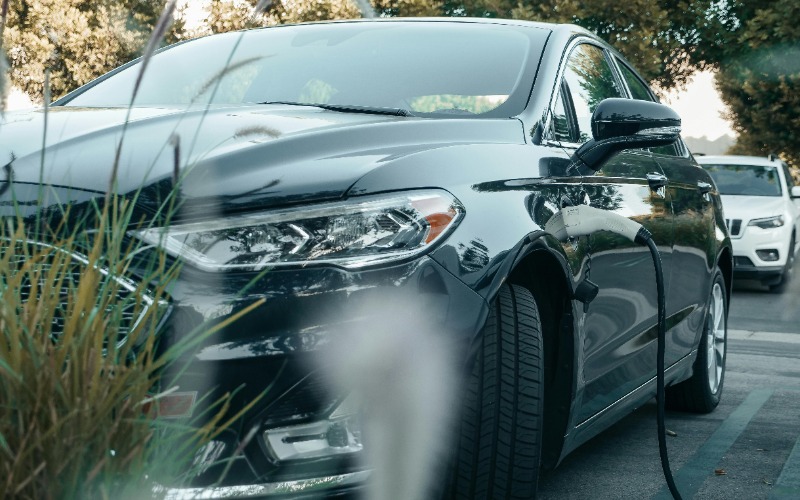It’s true what they say. Hybrids are hot right now.
Although the buzz around electric vehicles (EVs) hasn’t gone away (and likely won’t), hybrid vehicles are growing in popularity – and for good reason. When considering key factors such as range, power, efficiency, and even weather preparedness, hybrid cars are an ideal choice for those who want the best of both worlds and seek long-term value when buying a car.
I’ve always been passionate about cars, with five cars built at my R&D facility, teaching electric mobility engineering at UC Berkeley, and now serving as an Innovator in Residence at the University. After spending decades in entertainment engineering, I can confirm that when it comes to the design and adoption of any consumer product, it needs to make sense and check many boxes for the general public to buy.
People want to feel good about what they’re buying but they also want to enjoy the process and know they’re getting great value. Although EVs are redefining transportation in many ways, hybrid vehicles are the gateway drug to transition the masses toward adopting more sustainable choices when it comes to buying cars.
Below, I offer key points as to why Hybrids and EVs are the way to the future, with Hybrids bridging the gap until the electrical infrastructure is in place to go fully EV.
Weighing Benefits and Efficiency
The primary advantage of hybrids is convenience. Drivers can either plug in or fill up with gas and toggle between gas and electric power based on their needs. Unlike EVs, which suffer from reduced battery capacity in cold weather (with range loss varying from 10% to 36%, according to The Associated Press) Hybrids can continue to operate normally, eliminating range anxiety. Plus, Hybrids self-charge via regenerative braking, and the gas motor can step in as needed to supplement the drive. These benefits comfort drivers who want to transition to a more sustainable vehicle.
Alternatively, EVs offer long-term sustainability. They do not need gasoline, engine oil, transmission fluid, exhaust systems and need minimal maintenance. The result is a simplified assembly process, lower labor costs and higher overall efficiency to build and drive compared to a gasoline car, according to The Canada Energy Regulator (CER).
It’s worth noting today’s consternation about Lithium batteries (used in EVs) and the urgent need for an secure battery supply chain (most are made overseas). The EV battery recycling industry is in its infancy and we need better development and recycling methods Despite these challenges, the U.S. Department of Energy (DOE) recently announced $3.5 billion in funding to boost domestic production of advanced batteries and battery materials nationwide, indicating progress for the industry.
When comparing EVs, hybrids, and conventional vehicles, it’s important to understand well-to-wheels (WtW) efficiency – the efficiency of an EV converting electrical energy from the grid to power its wheels. Studies show the WtW efficiency of gasoline internal combustion engine vehicles (ICEVs) ranges between 11–27%, meaning a small portion of the energy is used for driving while the rest is wasted, contributing greenhouse gasses to the atmosphere. Whereas nearly 90% of the energy in EV batteries is used efficiently – that’s up to a whopping 79% difference! According to the National Center for Biotechnology Information, EVs and Hybrids are believed to reduce CO2 emissions by 18% and 1%, respectively, relative to conventional ICEVs. This demonstrates EVs are best for the environment, followed by Hybrids and then conventional cars.
Affordability and Accessibility
According to Business Insider surveys show that approximately a quarter of potential car buyers say they are very likely to buy an EV as their next car, but affordability is a major deterrent. With wages not keeping up with inflation, there’s a disconnect between wanting an EV and actually being able to afford one. Hybrids are cheaper than electric vehicles. In fact, the number of hybrids sold in the U.S. grew five times faster than EV sales in February, Reuters reported. Buyers paid $42,500 for hybrids in November 2023 on average compared with $60,500 for electric vehicles and $47,500 for gas cars, according to data reported by the New York Times. Cost is often a barrier for consumer adoption and EVs can be more pricey than some gasoline luxury vehicles. Toyota’s vice president of sales, Jeff Buchanan recently said the automaker is expecting 40% of its US sales to be from hybrid cars this year, which they attribute to the affordability relative to EVs and the concerns of limited charging options.
Charging stations are still relatively difficult to come by and charging can be time-consuming – certainly longer than it takes to fill up a tank of gas. Additionally, most homes are not equipped to support charging an EV until they are updated and the power grid may not be ready to support hundreds of thousands of EVs. This poses a challenge for states like California that require every new car sold must be a zero-emission vehicle beginning in 2035. This infrastructure issue is another reason why hybrids will be easier for most consumers to adopt before an EV.
Reduced Environmental Impact
Keeping future generations in mind, most people want to make practical choices that are relatively good for the environment. However, most people aren’t able to compromise in a drastic way by giving up their car for a bicycle for logistical reasons and may not be able to afford to buy an EV. Hybrids allow consumers to produce fewer emissions and use less gasoline than a traditional car while reducing the overall carbon footprint associated with driving. As far as taking care of your local environment, while EVs are the best for the environment long-term, hybrids are often quieter than a traditional engine, which is beneficial to your neighbors as well as wildlife who don’t enjoy disruption.
We’ve all read the news about automakers investing in electric and hybrid models thanks to the 2015 international Paris Climate Agreement establishing 2050 as a global deadline to reach net-zero greenhouse gas emissions. Plus, the U.S. government initiatives to invest in electric transportation, install charging stations and even offer tax credits as an incentive to buy plug-in cars and trucks indicate where the transportation industry is headed.
We’re definitely moving in a greener direction, it’s simply a matter of helping ease consumers into it and the path of least resistance will be hybrids. For those who want to make a difference, but are on a budget or not ready to jump into a fully electric car, hybrids are a great option. As more people choose hybrids and EVs, automakers will be more incentivized to research, innovate, and build more sustainable vehicles.











